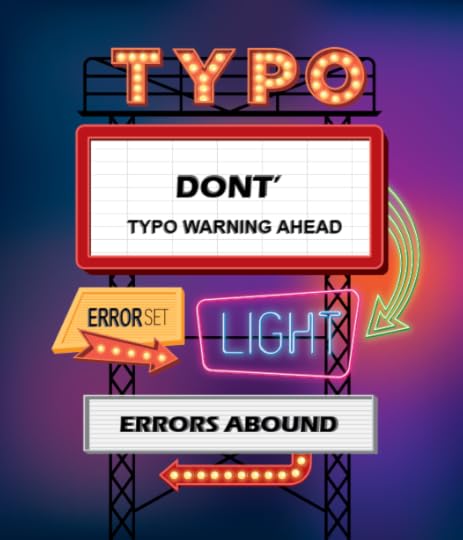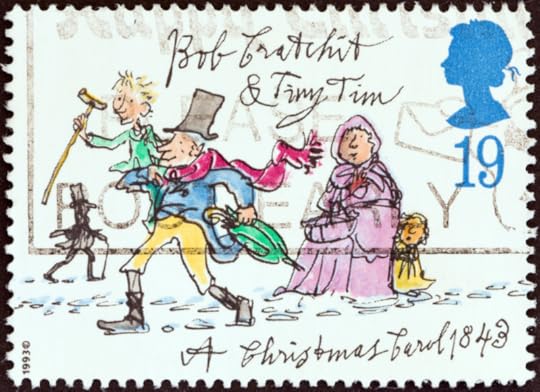S.K. Dunstall's Blog, page 19
September 15, 2018
My clock is fighting back
 This is not a picture of my new clock. This one is a lot more futuristic, but I swear the AI inside my clock loves soothing world music.
This is not a picture of my new clock. This one is a lot more futuristic, but I swear the AI inside my clock loves soothing world music.My alarm clock died. It was an old am/fm clock radio I’d had
for years. Probably at least ten. I mean, how often do you think to change your
clock radio? For a while I did the modern thing—used my phone as an alarm
instead—but it was tedious having to pick up the phone to see the time when I
was used to waking up and glancing at the clock. Anyway, nights were for
charging phones, not using it, and the charger was in the other room.
So I bought a new clock.
A new DAB radio, and I could connect through to my phone
onto if I wanted to, with lots of features. Want to have a weekday alarm and a
weekend alarm? Yes, please. (I know, some people would turn the weekend alarm
off, but I like waking to music.)
I followed the instructions. Set the time. Pre-set stations. Set the alarms.
It was so easy to set up.
It took time to work out what stations I wanted to hear. I
want a mix of old and new music, with a bit more emphasis on the new.
(Middle-of-the-road if such a term still exists.) News on the half-hour, weather. Not too much
talkback.
Talkback drives me crazy when I’m just waking up. And before my radio died it only got one
station for six months. A golden-oldies station that stopped at the Beatles era. About then, if I never heard a fifties song
again, I’d have been happy. Especially
when they all sounded so tinny on my old, dying radio.
I chose a weekday station and set the alarm. Again, it was easy.
Now for the weekend station.
What should I choose?
I scroll through my options.
Chill. What’s that? I check out the details. The
soothing sounds of world music.
I like world music.
Soothing sounds. I imagine the music
they play at meditation groups and when you go to the beautician. What about waking up to that? I can lie in bed and relax for half an hour
before I get up.
I listen to half a song. Not great, but okay.
I set my weekend alarm an hour later than weekdays. I don’t want to sleep in too late, but I want
some sleep in.
I’m all done, and it was so simple.
For the next week I enjoy waking up to an alarm I can hear,
an alarm that doesn’t play fifties music. Bliss.
Then comes the weekend.
I’m dragged awake by the most awful music. I listen to it for half an hour and pull
myself out of bed. I can’t listen any more.
Next day, it’s the same.
Two weeks of this and I know I have to change it. I scramble out of bed and find the first
station with a song I like. Bliss. I’m so happy I go back to sleep.
Next day the alarm comes on.
Guess what it’s playing?
Chill.
This time I go back to the setup guide that came with the
clock. I follow the instructions exactly as per the guide. I select my station, set the alarm. Next day, what comes up?
Chill.
I change the pre-programmed station, wipe Chill off the pre-programmed
stations. Reset the weekend alarm and
wait a week.
Come Saturday morning.
Chill.
It’s as if there’s some malevolent demon inside the clock and
really likes Chill music. But I am not
going to let this clock beat me. I’ll
keep trying.
I will un-chill.
September 8, 2018
One future concept I hope comes soon is self-driving cars
 A concept for self-driving cars. Note, this is totally impractical for older people. The seats are too low. Old people need seats they can sit on, without having to drop into, and they want to be able to twist, and not have to lift their feet too high. I liked the computer idea, thought that on her shopping trips Mum might like to check Facebook (she was a big Facebook user), but after shopping she was always tired, so a seat that reclined would probably be better. She could snooze all the way home.
A concept for self-driving cars. Note, this is totally impractical for older people. The seats are too low. Old people need seats they can sit on, without having to drop into, and they want to be able to twist, and not have to lift their feet too high. I liked the computer idea, thought that on her shopping trips Mum might like to check Facebook (she was a big Facebook user), but after shopping she was always tired, so a seat that reclined would probably be better. She could snooze all the way home.A group of us were sitting around this morning, discussing our parents getting old, some of the problems that caused, and how we can alleviate them.
Loneliness is one problem.
Many of our parents had lost a partner, lost many of their close friends. Or their friends have moved away. For us, a friend moving, say, two suburbs away isn’t much, but when you have limited mobility it becomes a major problem.
Many older people lack mobility. They can’t walk as far, or as fast, due to problems with hips or knees or their back. Many of them can’t drive any more due to vision problems.
Lack of mobility makes you housebound. It becomes harder to go out and do things, which makes it harder to talk to people, which in turn ends up making you lonelier. It becomes a vicious circle.
This is not just old people, by the way. It impacts everyone. It just happens that we were discussing old people, our experiences, and some of the problems.
A lot of the things we could do to make lives better for our elderly parents took place during working hours. Exercise classes, craft sessions, friends getting together. Which we couldn’t get to, because we were working.
We talked about how not being able to give our parents their freedom made us feel helpless.
Giving up your job, your life, to look after a parent is sometimes the only thing you can do. But most of the time, that’s not optimal. There’s the money aspect, of course, but there’s also the dignity, the freedom for the older person. They don’t want to be reliant on you. (Or our parents didn’t, anyway.) They want their own life, but they want it to be happy and fulfilled.
They certainly don’t want to have to rely on someone else.
It’s one reason I can’t wait for self-driving cars.
Seven years before Mum died she lived in a small country town which had a post-office/shop and that was it. Even the local pub, which used to be open Friday and Saturday nights, had closed down. She drove 100 kilometres for groceries, and she was losing her sight. So we moved her across the state (a move of 400km) to be closer to her family.
If we’d had self-driving cars, she could have stayed in her own home longer.
Mum left most of her friends behind when she moved, and while her new town had family, with her limited visibility it was till hard to go out and do things on her own. She had to wait until one of her children was available to take her shopping. There were exercise sessions she was encouraged to go to, but she had to take a taxi to get there. She couldn’t go to places like craft classes, because most of them were in working hours.
She was tied to our schedule, not her own.
If we’d had self-driving cars she could have gone where she wanted to, when she wanted to. It would have given her back mobility, which would have given her back her freedom.
That’s no small thing.
(Mum moved into an aged care facility six months before she died. She loved it. There were people around to talk to. They ran classes. They had concerts, and excursions. She could do things again.)
September 1, 2018
A time for discovery

Gregor Mendel’s painstaking work with pea flowers established the rules of heredity, which led on to further discoveries about genetics.
I’m slowly working my way through Alanna Mitchell’s The Spinning Magnet. It’s non-fiction, a book about the north and south magnetic poles switching and the impact that might have. The book caught my interest because we have an old story based around this idea that we’d love to revive. We shelved our original story because we thought advances in technology meant the switching wouldn’t have as much impact as we had originally believed.
We’re thinking of resurrecting the story because, according to Mitchell, something like this could still do a lot of damage to infrastructure and the environment.
Mitchell starts by giving the history of the discovery of electromagnetism.
What struck me, as I read, is how many people got parts of the theory right years before their part of the theory was accepted as fact, but were laughed at by their peers.
Alfred Wegener, for example, came up with the theory of continental drift back in 1915 and was criticised for it. It wasn’t until the 1950s that the theory became popular. (Continents drifting on a molten core is important to the concept of Earth as a massive electromagnet.)
But it’s not just electromagnetism where important findings are overlooked.
Nowadays, Gregor Mendel is known as the father of genetics, but while he was alive his paper on his garden of peas and his theories of inheritance were ignored while he was alive. Nowadays he’s known as the father of modern genetics.
You wonder how many other scientific discoveries are out there, even now, that are being derided or ignored. Or discoveries that people don’t publish because they didn’t want to be ridiculed.
Charles Darwin sat on his theory of the origin of the species by natural selection for years before publishing it. Not until a young, upstart scientist/writer by the name of Alfred Wallace sent him his (Wallace’s) own paper on his theory of natural selection which he’d developed from trips to the Amazon and the Malay Archipelago.
A year later, Darwin published his paper.
(To be fair, in between, he published a paper with Wallace, and he and Wallace apparently supported each other over the years.)
Alfred Wallace was well-known during his life, yet it’s only recently that he’s come back into favour. Most of us learned about Charles Darwin, we didn’t learn about his contemporary.
And what about poor old Mendel? I learned about Mendel and his peas in secondary school, and again at university. It’s only when we were researching genetics for Stars Uncharted that we discovered that if it hadn’t been for someone dredging up an old paper nearly fifty years after Mendel wrote his intial paper, we might never have known his about his painstaking research.
Maybe there’s something to be said, after all, for the academic ‘publish or perish’. At least academic papers are electronic nowadays. Put the right search terms in and someone up comes your work. Maybe they’ll quote it.
Or a science fiction writer might even find it and pick it up as an idea that might just work. You never know.
It wouldn’t be the first time a writer has picked up a crazy, seemingly far-out idea that was later proven to be factual.
August 25, 2018
There’s always one error left

Book news first
We have one more interview online for Stars Uncharted, if you’re interested. It’s over at PaulSemel.com. In the interview we talk about who we’d like to play Nika and Josune if they ever made a movie out of Stars Uncharted, and we talk about how the show Firefly didn’t influence the writing of the book. No, we go way back further than that, to Star Trek, Doctor Who and Blake’s Seven.
Now, back to the main post
I did a presentation at work the other day, myself and two others. It was a good presentation. At the end we did a demo. After the demo we answered questions for around fifteen minutes.
Up on screen, the final page was left up while we talked. And all I could see was the typo I should have fixed.
“What we dont’ …”
All in big, dark letters because it was a sub-heading.
The first thing I did when I got back to my desk was fix it.
The fact is, when you’re writing, you make a lot of typos. Errors you don’t pick up, even when you read a piece of writing again and again. One of the advantages of co-writing is that another person is reading your work all the time. They pick up things you don’t see.
I know that when I’m writing, I’ll often change a sentence, but not go back and delete words that made sense in the context of the original text, but don’t any more. And the funny thing is, even when I reread the sentence, I don’t pick up all the errors.
No matter how often you read your own work, you miss things.
Right at the end of a story we like to read our novels aloud. This is after more than twenty rounds of edits on the book. Even so, it’s amazing how much we change in that last round.
And we still miss things. There are the typos which mostly get picked up by the editor and the copy editor, thank goodness. (Although, there were five thousand copy editor corrections on Linesman. Admittedly half those were serial comma issues, and many of the rest were Australian/US spelling, but that still left a lot of basic typos.)
Less often, there are basic logic errors. For example, as one of our readers pointed out in Stars Uncharted (Thanks, Ian) that a measurement is tiny.
Alejandro’s meddling had taught her early that she had to build in safeties. Especially after they had started using the exchanger and she’d come back to her own body once to find that while he’d been in her body he’d redesigned it to add twenty millimetres to her bust and to remove the same from her waist.
Yes, well. Twenty millimetres. That’s 0.8 of an inch. Just a bit over three quarters of an inch. Not quite what we had had in mind.
We originally had it two inches. (For those of you who have read the book, Alejandro would have tried a small amount first, to see how far he could go, which is why we chose two inches.) Everything else in the book was in SI units (metric), so we changed it. Except, two inches is 51 millimetres, not twenty. We should have made it fifty.
Ouch.
August 18, 2018
We survived pub day

Let no one tell you that the internet is a waste of time. You learn things on the internet. The other day on Twitter @rainbow1973 posted an image of a rainbow eucalyptus tree.
Rainbow eucalyptus? Australia is the land of the eucalypt, but I had never heard of them.
It turns out that they’re not native to Australia. Here’s me thinking all eucalypts originated here. I was wrong.
Rainbow eucalyptus, also known as Mindanao gum or the rainbow gum (I wonder where they got that name) grow in warm, tropical climates and can be found in places like New Guinea, Indonesia and the Philippines. They’re the only eucalyptus that grows natively in the northern hemisphere. The image above is of a tree in Hawaii.
Stars Uncharted is finally out
Publication day has come and gone. It seemed to go well, and we had wonderful marketing for it. Things are quieting down now. We hope those of you who bought the book enjoy it. This has been the most nerve-wracking release since Linesman, in a way, because it’s not a Linesman book.
As promised, we said we’d put interviews up for you. Here are the first few.
Over at SyFy Wire we talk about writing together, world building, and media that influenced us when writing Stars Uncharted.
On Jean Book Nerd we talk about inspirations for developing Nika and Josune, and some influences/turning points in our lives.
One thing I did notice, my IT background crossed over and I didn’t even realise. Before ‘publication’ day I kept calling it release day, and I have trained Sherylyn to say ‘release’ as well. I have learned. Next time I’ll do better.
August 13, 2018
Release day – Stars Uncharted

Stars Uncharted is now officially available.
Our thanks to the team who helped us create it. Our beta readers, our agent, our editor, the artists and designers, the copy-editors, marketing, all the assistants and everyone else along the way who was part of it. Thank you. We didn’t do this alone.
Enjoy.
August 11, 2018
Email interviews coming soon

If you want to know the answer to who do we think should play Nika and Josune in a movie or television adaption of our latest book, we answer the question in an upcoming interview.
Tuesday is book release day. It’s coming fast.
We spent the last week answering interview questions. We’ll let you know where to find the interviews (if you’re interested, that is), once we know the links.
To date, they’ve mostly been email interviews. That is, the interviewer sends us a list of questions and we answer them. This type of interview suits us, because of the time difference between Australia and the US. We can answer in our own time. It’s especially handy when you both work full-time.
I once had a job once where I was the English-speaking liaison for a software product, so when someone from the US wanted to know about that product they’d call me. Or I’d call them. Only we’re GMT+10, and New York is GMT-4, so office hours in the US are night time for us. I can tell you, it wasn’t fun. So I really like the luxury of being able to email our answers back.
As we worked through the last interview, I realised that we work on them exactly the way we work on stories.
We start with the idea. In this case, the interview questions. We talk about our answers. One of us goes away and writes down, roughly, what we said. She sends it to the other one, who edits the answers and adds extra bits. We discuss it again, to see if we have answered the questions. One of us fine-tunes the words. We read the answers aloud. Finally, back it goes to Alexis, in the Publicity department at the Publisher’s.
Which is pretty much how we write our books nowadays, too.
August 4, 2018
Deleted scenes

Sometimes, the scenes we delete are simply that, scenes. Other times we rub out a whole character.
We don’t know about other writers, but when we write novels, we delete as much as we write. Sometimes we delete more.
The problem is, some of these deleted scenes are great. We like them, anyway.
Some of them aren’t so great, either. Back when we first started writing Linesman we deleted a lot of Rossi scenes. Looking at those scenes now, they had to go. They were boring, and didn’t add to the story at all.
But there are other scenes we delete because the story turns in a direction different to that in which it was going. Or you write yourself into a hole, realise something can’t happen. Or you write a scene that happened way too early for the book. Those sorts of things.
We do keep deleted scenes. We have massive OneNote file with pages and pages of deleted scenes in there.
We like some of these scenes. Sometimes we were sorry we couldn’t do anything with them.
Earlier this year we started a newsletter. Newsletters are good for letting readers know what we’re doing without them having to look for that information, but what’s the point in a newsletter if it doesn’t give you something you can’t get elsewhere?
We considered writing short stories about the characters in our books, but neither of us are great short story writers. And having to write four a year. Nope.
If we can write any short stories we might still put them into the newsletter. Meantime, what a perfect place to put up our deleted scenes.
They’re not great, because most of them are little more than a first draft, but they are a look into our writing life. Particularly if we can continue to show the deleted scenes of characters we really like. You never know, they might turn up in a later book in a different guise.
July 29, 2018
Speech tags and other stuff
Today’s blog comes to you a little late, as we were traveling this weekend. We used to travel a lot, but since Mum died, not so much. As a result, we find we’re no longer in the habit of it. It’s more exhausting, and we can’t to do a 500km (300mile) round-trip in one day now.
Especially not this weekend, where it took us six hours to go one way, because of roadworks. The car gives a ‘take a break’ warning when you’re been driving for two hours without stopping. We hadn’t even made it a hundred kilometres from home by the time the warning light came on.
We’re out of the habit of traveling. Took our bags into the motel, settled down to wash and freshen up. “Where are the toothbrushes?”
“Ah. Forgot them.” It was my job to pack the travel toiletries.
“Okay. We’ll sort that out later. Where’d you put the hairbrush?”
“Ah. Forgot that, too.”
And that was just the start, which culminated in the realization, as I got ready for bed last night, that I had also omitted to pack any nightwear.
I was so totally disorganized.
But, I digress.
What I really planned to talk about today was speech tags. “She said, he mumbled, Jacob yelled.”
Over the years there’s been a real trend away from using any attribution other than said.
But that wasn’t always the case. Charles Dickens, for example, used a lot of saids, but he also used a lot of other attributions as well. Take A Christmas Carol.
“A merry Christmas, uncle, may God save you,” cried a cheerful voice …
… “If I could work my will,” said Scrooge, indignantly, “every idiot who goes about with ‘Merry Christmas,’ on his lips, should be boiled in his own pudding, and buried with a stake of holly through his heart. He should!”
“Uncle!” pleaded the nephew.
“Nephew,” returned his uncle, sternly …
… “What else can I be?” returned the uncle …
… “Because you fell in love,” growled Scrooge.
From A Christmas Carol, Charles Dickens
Dickens wrote such beautiful, evocative language, and he described how people said things. Uttered, growled, observed, returned, replied as well as said. He also used adverbs a lot—sternly, gaily—which are less popular nowadays, as they’re considered ‘telling’ rather than showing
Nowadays the commonly accepted attribution is ‘said’. If you use anything else, you’re likely to have a reviewer come back and say, “Do you need to use this word? Why don’t you just say ‘said’, it doesn’t jump out as much. That same reviewer might also say, “You have a lot of ‘ly’ words, are they all necessary?”
There was an interesting thread on twitter the other night about the use of said, which summed it up well, I thought. Scott Pack (@meandybigmouth) said:
“Most of the time, just putting ‘she said’ after some speech will do the job. When you are constantly mixing it up—she murmured, she argued, she added—it stands out, and not in a good way.”
Scott Pack, 27 July 2018.
Interestingly, a later tweet in the same thread by John Scalzi (@scalzi), pointed out that reading is not the same as listening, and that ‘he said’ stands out in audiobook narration. That while for a reader ‘he said’ blends into the background, it stands out when hearing the story narrated.
I agree.
That’s why it’s so helpful to read your novel aloud before you send it to the editor. It’s amazing how some things that are fine as read, really jar when read aloud.
As a general trend, though, as the audiobook audience grows as a percentage of total audience, I think we’ll see even less ‘he/she saids’ in stories and more working the dialogue around what else is happening in that paragraph, and the unique voice of that particular character.
Which can only be a good thing. Isn’t that what most writers aspire to? A story with characters so unique that you know immediately who is speaking just by how they say it.
July 21, 2018
A musical interlude
I love Pachelbel’s Canon. We even have a CD at home, called Pachelbel’s Greatest Hit: Canon in D, which we play on occasion. Although I do admit, while I can listen to soundtracks over and over again, the Canon album is usually a one-listen. Enough is enough.
Some of my favourite Canon pieces, though, are those where comedians get to do a take on it. I believe it can be quite boring if you are a cellist.
Rob Paravonian’s Pachelbel rant was back in 2006, but I’ve always enjoyed it.
Or the Piano Guys ‘Rockelbel’s Canon’ (around 2013). You will need to click through to YouTube to see this one.
And now we also Pachelbel’s Chicken.
The chickens are by an Australian classical duo known as Two Set Violins — Brett Yang and Eddy Chen—a classical comedy duo whose aim is (and I quote from their web site):
“Making Classical music relevant to the modern generation through fun, humor and simplicity.”
All these images are originally from YouTube.




